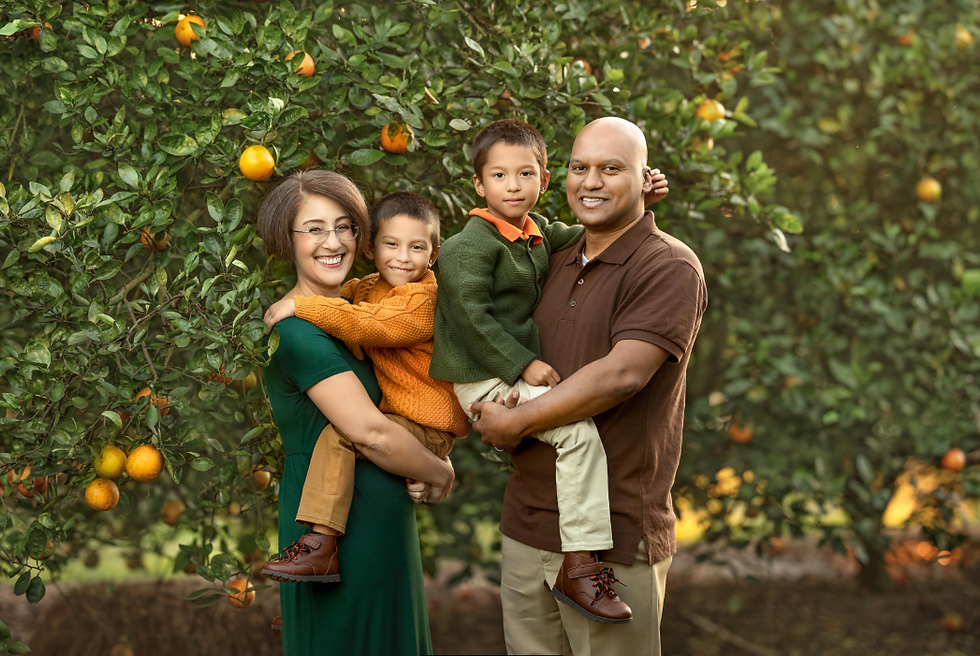Germline ATM Mutation
- Surviving Breast Cancer

- Aug 7, 2022
- 7 min read
Updated: Nov 3, 2025
By Abigail Johnston
Once I was told that I had Stage IV Metastatic Breast Cancer in the Spring of 2017, I started a notebook with terms and definitions. I’ve gone through several of them in the last three (3) years, and I’m always adding to the basic definitions that I found initially. I style myself a professional patient, and part of that status is that I’ve literally had to learn a new language. My old skills of reading and analyzing often hamper me now; wordsmithing is literally my thing, and that doesn’t work well at all when reading medical reports!
Germline Versus Somatic Mutations
Two terms that I’ve had to learn quite a bit about are “Germline Mutations” and “Somatic Mutations,” as well as the different tests to determine each. Why do we need to know these things? I’m glad you are here to learn a little bit about why knowing if you have one or more of these types of mutations is important.
Genetic Testing
When I was initially diagnosed with breast cancer, my doctor performed a whole lot of tests. It was a crazy whirlwind, and I had a limited understanding of why she was performing most of the tests because I blindly followed her lead. I think a lot of us are in that boat at the beginning, or at least less able to process and evaluate the barrage of information coming towards us. Once the dust started to settle and I actually received all of the paperwork that showed what was going on, I spent a lot of time reading each word. I discovered that one of the tests my doctor performed was a genetic test.

A genetic test is “the study of a person’s DNA in order to identify genetic differences or susceptibility to particular diseases or abnormalities.” My genetic test involved a phlebotomist drawing a vial of blood and then waiting for the result. We received a really thick, detailed report from Myriad Genetics, the company my doctor selected. That report revealed that there was a mutation that I received from my mother, the ATM mutation, and that this mutation was actionable (more about genetic testing on our podcast).
Germ line (sometimes one word, sometimes two) means “A series of germ cells each descended or developed from earlier cells in the series, regarded as continuing through successive generations of an organism.” Since we get half of our DNA from our biological mothers and half from our biological fathers, our literal cells are derived 100% from theirs. We discovered that the ATM mutation is quite prevalent in my mother’s family, and each of us who has tested positive has had to make hard choices as to how to deal with the genetic abnormality before or after a breast or prostate cancer diagnosis.

One great resource for anyone who has hereditary cancer of any kind is FORCE, which stands for Facing Our Risk of Cancer Empowered. From their website, the ATM Mutation is defined as “Inherited mutations in the ATM (Ataxia-Telangiectasia mutated) gene are associated with increased risk of certain cancers. People who inherit a mutated copy of ATM from one parent are at increased risk of female breast cancer (up to 52% lifetime risk), and possibly pancreatic, prostate, and other cancers. Ongoing research may identify other cancer risks, such as prostate and pancreatic cancer in people with inherited ATM mutations.”
A key point about selecting a genetic company is that it is a reputable lab that has the ability to ensure that your testing will be re-reviewed as new information comes out about mutations. This field is ever-changing, and the labs are required to send a letter to the patients when their testing is updated and new mutations are discovered. Since precision medicine is the future, knowing exactly what can be targeted may mean the difference between life and death at some point. None of the direct-to-consumer genetic testing companies (23&Me, Ancestry, Color, etc.) do this follow-up up and that could lead to a false sense of security.
Once You Know if There is a Germline Mutation, Then What?
At this point, there aren’t any specific medications for the ATM mutation, but there are for the BRCA mutations, and many of the ongoing clinical studies contain different arms that are looking at the effect of each medication on different germline mutations. The future is precision medicine, and to get there, scientists need to know if cancer will behave differently when a germline mutation is present in the body.
Additionally, knowing whether a mutation carries a risk of another type of cancer may change surveillance or timing of testing to ensure that no other cancer has begun to grow.
Lastly, knowing that you carry a germline mutation requires an analysis of whether you have a child who might be affected, or whether you decide to have children at all, or seek scientific intervention to prevent passing along a mutation.
Genomic Tests for Resectable Tumors
Another type of test that may be offered to you or you might want to ask about, is genomic tests that look for somatic mutations in a resectable tumor. See what I said about the different language? I’ll break it down.
Genomic Testing, in contrast to genetic testing, is “relating to the haploid set of chromosomes in a gamete or microorganism, or the complete set of genes in a cell or organism.” So, instead of looking at the similarities between a series of cells (genetic), genomic testing looks at the individual cells to examine why those cells are different from others. For me, my genomic testing was done on my original tumor removed from my left breast through a lumpectomy since my metastases are all inside my bones, which makes them inaccessible or not resectable (obtainable via surgery). For someone with a tumor or met in the soft tissue, like the lung or liver, a biopsy of that metastasis would give the most up-to-date information.
While genetic testing is usually covered by insurance or provides generous assistance with co-pays, genomic testing is still not as prevalent.
When I completed mine in 2018, it was through a trial at Memorial Sloan Kettering (MSK), and I had access to that trial because my cancer center in Miami has a partnership with MSK. I have heard that obtaining insurance coverage for genomic testing is not as easy yet, but that it is getting easier, especially when understanding if there is a targetable mutation is becoming more key as more and more precise targets are approved by the FDA.
Somatic Mutations
Somatic means “of the body” in contrast to being of the mind, and a somatic mutation is quite literally a mutation of the cells of the body. These mutations are ones that the cancer cells have acquired through their growth and uncontrollable copying of themselves. As the cells copy themselves over and over, some pieces of the DNA are lost, some are acquired, and the cells continue to mutate. Once a mutation has begun, it often continues through the rest of the copies, and thus, a target is created.
For example, my genomic testing revealed five (5) mutations, all various combinations of letters and numbers. My report told me that the only actionable mutation on the list was the PIK3CA mutation. In May of 2019, the very first medication to target the PIK3CA mutation, Piqray (abelisib), was fast-tracked by the FDA, and when I had progression in August of 2019, I was able to get right on it. Knowing that the genomic testing led directly to a medication that was available to me was truly a satisfying experience.
As you can see from the above, I have benefited from both genetic and genomic testing in that each has given me a different piece of the puzzle and informed the actions that I, my family, and my medical oncologist have taken. For this reason, I often suggest to other patients with cancer that they get testing done to see if there are actionable results. However, one thing to consider is that it is still a possibility that no mutations will be found on either test.
I have known several friends who are in that very situation, and it can be discouraging to go through the trouble of arranging and getting a test covered only to find out that the results are not helpful at that time. There is always the chance that ongoing research would mean that further testing could be done on the same or an updated sample; however, understanding that the results may not result in actionable data is something to consider before walking down this road.
About the Author:
In 2017, at the ripe old age of 38, while living in Orlando, Florida, I was diagnosed with Stage IV Metastatic Breast Cancer after feeling a lump in my left breast while tandem nursing my boys, who are now 7 and 5. The summer of 2017 was a rollercoaster of emotions as I faced four body and life-changing surgeries amidst chemo and radiation.
Once the whirlwind had settled a bit and I’d completed transitioning my clients and staff at my law firm to another law firm, my husband, two boys, and I moved to Miami to live with my family. Looking back, I’m astonished at how much has changed, how much we have overcome as a family, and how everyone has adjusted. While I don’t actively practice law, I use my education and training in a variety of ways for the breast cancer community, advocating for patients and thrivers. I have started my own non-profit, Connect IV Legal Services, where I recruit lawyers to do pro bono work for Stage IV patients.
I’m also active in many local and national organizations, volunteering and adding my voice to educate and persuade others to connect with and help my community. You can connect with me by checking out my blog, www.NoHalfMeasures.blog, or following me on Twitter, Instagram, Facebook, LinkedIn, or YouTube! - Abigail Johnston











